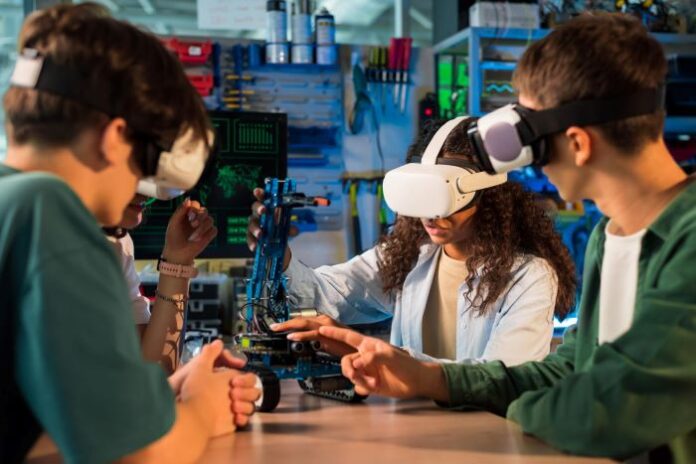As Gen Z and the Alpha generations become the future of our workforce, questions abound regarding how to reach them, the best ways to teach employable skills, and how we fill the skills gaps we see in our current workforce along with the projected talent gaps in the near future. Here we’ll delve into career gaming.
The persisting skills gap
For instance, 2.1 million manufacturing jobs could go unfilled by 2030, even with the blistering pace of Artificial Intelligence (AI). Skill sets that potential workers need to succeed in the sector are being reshaped, and both awareness and access to these skills need to keep pace.
As the education landscape begins to shift from a classic curriculum to one focused on traditional studies, it needs to incorporate more elements of career awareness aligned with the skilled jobs that actually need filling. Because employers are becoming more receptive to hiring based on skills than degrees, the time is now to modernize our talent pipelines by democratizing the career development process, which starts by reaching our future workforce earlier.
To do so, we need to meet these young learners where they are outside of school, doing what they love: Gaming.
As an innovative workforce solution, skillsgapp offers career games to support the following industries: Advanced Manufacturing, Healthcare, Life Sciences and Cybersecurity/IT.
Meeting youth where they are
Deloitte noted that playing video games is the favorite source of entertainment for Gen Z in the US, UK, Germany, Brazil, and Japan, with 96% saying they spend more time playing video games than listening to music, watching videos, or perusing social media.
This creates an opportunity to gamify career awareness (career gaming) and readiness in the process. Games that simulate a real-life job put students in the position of an employee, teaching them soft skills and hard skills (as much as a simulation can impart) and sets the expectations of what that particular career path looks like.
For example, 80% of young adults who played our game Rad Lab went from having no idea what Life Science was to learning that the field is about making products for healthcare.
The same percentage learned that you don’t need to be a scientist to work in the Life Sciences field. This is huge in promoting STEM careers that don’t require a four-year degree.
Scaling early career awareness
“Career gaming” can benefit companies as well. Employers can spotlight their brand in-game, most needed jobs and regional pathways using geo-location technology to attract a larger, more vetted talent pipeline.
Using gamification and game theory allows for interactive game-based assessments and real-time challenges for employers to assess a player’s problem-solving and communication skills. Their assessment is based on job-like simulations rather than a series of interviews, and assessment tests. Think of career gaming as a virtual apprenticeship.
There is also the bonus that companies are breeding loyalty early. By companies exposing players to what they want them to know upfront, the employer and employees’ expectations are aligned. For instance, players who enter a job knowing they must wear a mask in a lab or a “bunny suit” in a cleanroom all day mitigate the cost of attrition as there are no surprises.
AI for the workforce win
Just as AI is constantly changing the necessary skillset of an employee, it will also revolutionize gamified recruitment. In this case, it’s a force multiplier as AI will offer dynamic and adaptive learning experiences in which career games can adapt to a user’s proficiency level and present challenges based on their progress while aligning with a hiring team’s needs.
AI’s adaptations and personalization will help companies to break away from one-size-fits-all hiring models.
Such levels of customization will peak players’ interests while allowing companies to understand a candidate’s personality better and identify the traits that make them more or less suited for the position in question.
The gamification of career development (career gaming) is the wave of the future, offering future workers a fun, simulated job construct where they spend the majority of their time doing what they enjoy most. The potential to reach any student with a mobile device is a great equalizer, offering the same opportunities regardless of background or socioeconomic status.
For companies, the ability to expose the next workforce generation to their brand and industry provides a huge leg up in growing a qualified talent pool, as well as a competitive advantage over those industries fighting for the same talent.
The gamification of career development is a strong contender for feeding our future workforce pipeline early, while filling in the skills gaps along the way.















